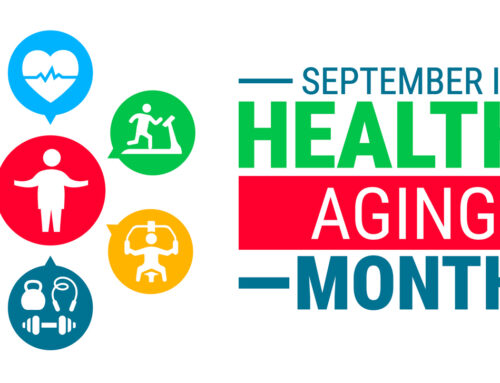Do you veg out in front of the TV too much? Do you eat a lot of junk food? Do you focus on the negative? If so, you might want to change some of your habits, as these have all been linked to brain decline. That’s right, not only is lack of activity and eating poorly bad for your waistline, but it also can be detrimental for your brain. As a home healthcare company, FirstLantic is concerned about the well-being of others, and we want to make sure that you know how to take care of yourself both physically and mentally. June is also Alzheimer’s and Brain Awareness Month so read on for a list of 10 things that you can do to keep your brain healthy and stimulated.
- Quit Smoking –some research suggests Smoking can increase your risk of dementia by 50 percent compared to non-smokers. It’s also strongly linked to vascular dementia, a form of dementia caused by strokes or other conditions impeding blood flow to the brain.
- Focus on the Positive – dwelling on the negative is bad for your mood — and your brain. Avoid the news for a few days or cut out those who only have bad things to say about others. Actively seek out the positive stories. Watch a few silly cat and dog videos, or better yet, adopt a little furball of your own!
- Treat Others Well – when you volunteer or do something positive to help others, you not only help them, but you help yourself with both mental and physical benefits.
- Drink Less – we know that for many of us, we started drinking more because of COVID. And who could blame us? However, now there is a light at the end of the tunnel; try to cut down on the number of days you drink or the amount of alcohol you consume. It’s been proven that drinking can lead to shrinkage in the brain region responsible for learning and memory.
- Follow the MIND Diet – The Mind diet is a combination of the Mediterranean diet and the DASH diet, which have many healthy foods in common. Unfortunately, a large part of the American diet consists of high levels of saturated fat, sugar, and processed meats, leading to a higher risk for dementia, obesity, heart disease, and diabetes. Research shows that being obese in middle age boosts your dementia odds by up to 50 percent. And people with type 2 diabetes are up to twice as likely to develop AD as those who don’t have diabetes. Some even refer to Alzheimer’s as “type 3 diabetes.” So, quit trying the latest diet craze and choose to eat a healthy MIND diet that has been proven to help you both mentally and physically.
- Socialize More – social isolation can not only lead to loneliness, but it can impact your brain. So, get out and about as much as you can. Join a book club (offline or online), participate in a walking group, or grab dinner with friends. If you don’t have family or friends nearby, then volunteer. Two birds with one stone!
- Get your Beauty Sleep – sleeping for 7 to 9 uninterrupted hours is ideal to feel your best. Start by sticking to a schedule every night, practicing relaxation techniques, and turning off all electronic devices at least an hour before bed. And if you snore, see a doctor. Snoring keeps others awake and can often be caused by sleep apnea, which has been linked to impaired thinking and memory.
- Get off the Couch – lack of exercise often leads to obesity and diabetes, which has also been linked to dementia. So, get moving. Regular exercise is better, but every little bit helps. Walk around the house or office when you’re on the phone, take the stairs instead of the elevator, and park further away when you go to the grocery store. Starting small can lead to better habits overall.
- Find your Passion – whether you love to paint, read, play golf, or commune with nature, purpose and passion are associated with a lower incidence of AD. Curiosity and an endless love of learning have also been shown to be good for your brain.
- Brain Exercises – training your brain can keep you more alert and may help slow cognitive decline. Whether you like to play word or number games or solve puzzles, pursuing intellectual activities can be a relatively easy way to help keep your brain stimulated.
For anyone who has had to witness a loved one deal with dementia, you know how heartbreaking it can be. According to a 2018 study in Alzheimer’s and Dementia: about 5 million seniors in the U.S. were living with dementia as of 2014. However, by 2060, that total is expected to grow to almost 14 million people. So, while there is no fool-proof way to avoid dementia, we can take steps now to try to keep our brains as healthy as possible.
If you or someone you know in South Florida is struggling with dementia and needs home care, please contact FirstLantic.
If you would like to read more FirstLantic blogs, click here
For More Information About the Aging Brain
NIA Information Resource Center
800-222-2225 (toll-free)
 AVAILABLE 24 HOURS A DAY/7 DAYS A WEEK
AVAILABLE 24 HOURS A DAY/7 DAYS A WEEK Careers
Careers







